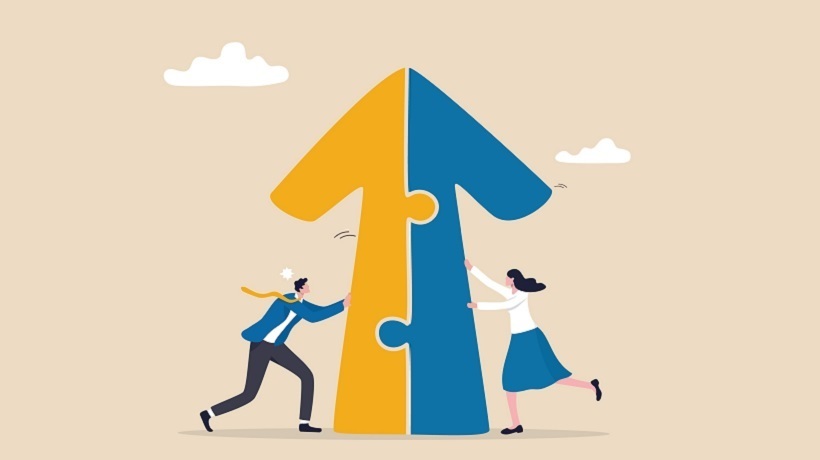Mergers And Acquisitions Blues
When companies are going through a merger or acquisition (M&A), its a time of great change and upheaval. Can you relate? Have you been part of an acquisition? How did it go? Did you feel like you were joining someone else's house? Were you welcomed there? Was their culture like the one you came from? Did you feel like you had two left feet in a quest to get your sea legs? Fearful of missteps? If so, you are not alone. In fact, a study by Harvard Business Review indicated a failure rate of M&As of between 70% to 90%.
"Julie, we feel like the stepchild of XYZ company," said a former client in the health sciences space. "It's been three years and not one executive [from the acquiring company] has come to visit with us," said one notable company that was acquired. "We do our best to keep our original culture and processes. We are trying to keep our team and the community knows us as a best place to work"
A Unifying Integration Approach To M&As
One reason so many M&A's fail is the lack of a unifying integration approach. A little engineering and planning for the people can go a long way. How are you truly leading people through change? How are you communicating with the people? People often feel very concerned about a myriad of factors, from layoffs to skillsets and benefits, and as a result of that insecurity, start polishing up their resumes and LinkedIn profiles. The rumor circuit starts tying its shoelaces and is off to the races. Communication internally is crucial, but with Zoom or MS Teams fatigue it's hard to really reach everyone.
The pandemic made it harder to meet your new colleagues in person and truly feel part of the new culture. So how can companies replace the proverbial "watercooler conversations" to help new and current team members adapt to the change? Companies are also faced with a mental health epidemic, and a loneliness epidemic that unfortunately started pre-COVID-19.
M&As And Peer-To-Peer Mentoring
One thing that I have seen work really well has been the establishment of a peer-to-peer mentoring initiative. In fact, I had the opportunity to build one with my former colleague, a Chief People Officer for her company after they were acquired. She is visionary and very heart-centric, with a great understanding of the costs of turnover. She wanted people managers who really understood the change taking place, to match with the people managers in the newly acquired company. She also wanted to turbocharge meaningful connections between the two companies, to decrease the "valley of despair" sentiments that she was anticipating.
We used the theme "iron sharpens iron" in all our trainings for her people managers, and created a customized vehicle for executives to find their own matches through a specialized experience (flash mentoring) that had tenets of speed dating. People at the CXO level for both companies came to the table and signed up to be peers, knowing that, as iron sharpens iron, we can grow sharper and stronger together. No one is better than another, and all have so much to offer each other.
The goodwill has been off the charts, and we have seen a collective sigh of relief that people have someone to go to, to help them navigate the turbulence for 6 months (a 10–12 hour total commitment of time, including training, was very doable and cost-effective). "One of our physicians was planning on leaving," another client shared with me, "but now has benefitted from their mentoring relationship so much that they plan to stay on and have weathered the storm."
Conclusion
Gallup has done extensive research on the value of having a best friend at work for increased job satisfaction, retention, collaboration, and so much more. Having a BFF at work is linked to feelings of joy and belonging. I would argue that every M&A should have a peer-to-peer mentoring initiative (or buddy program) in its DNA. Your new team members and legacy team members are so worth it, and you will likely save millions in the cost of turnover, toxicity built from incorrect assumptions, and lowered productivity.
